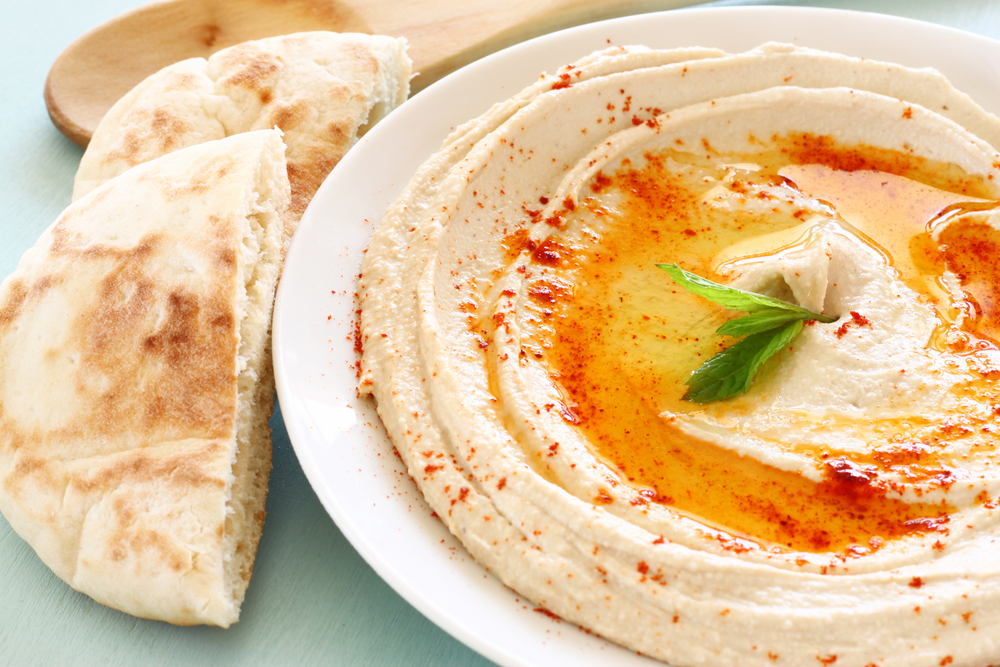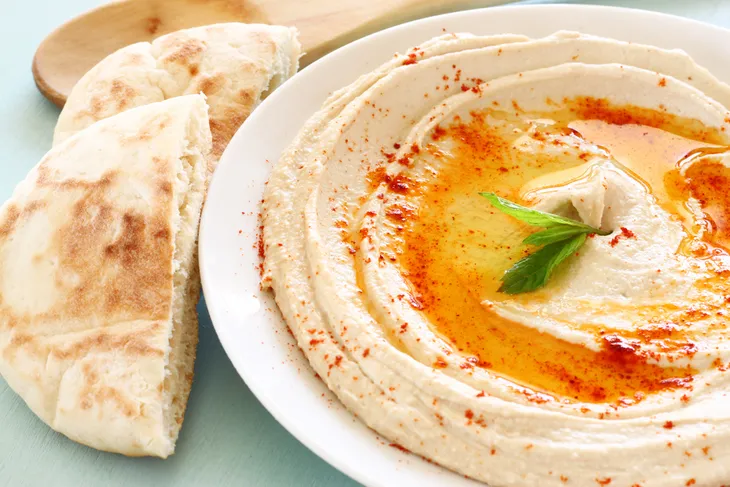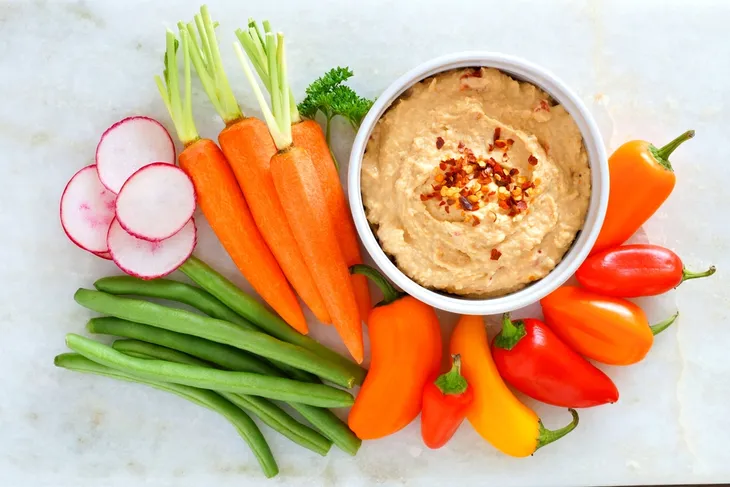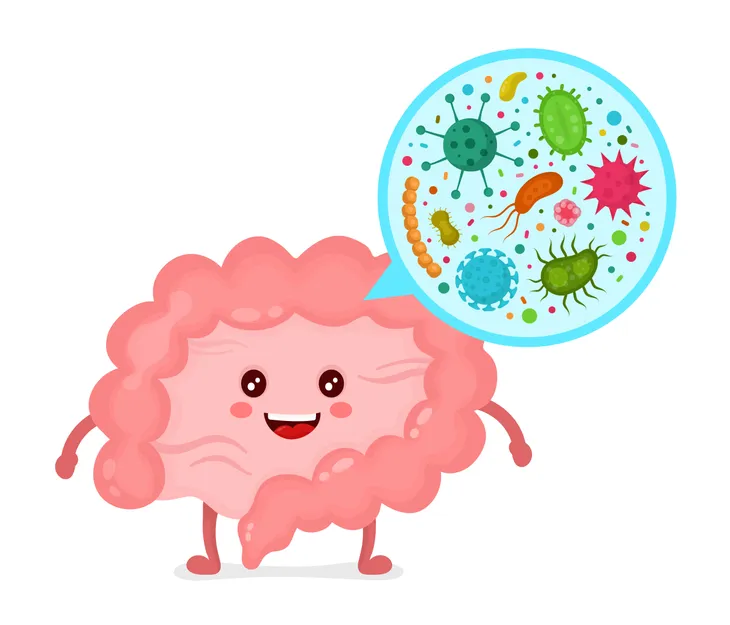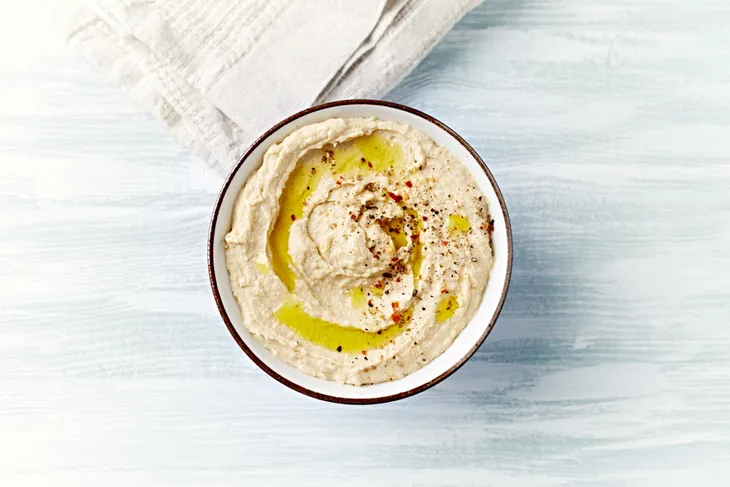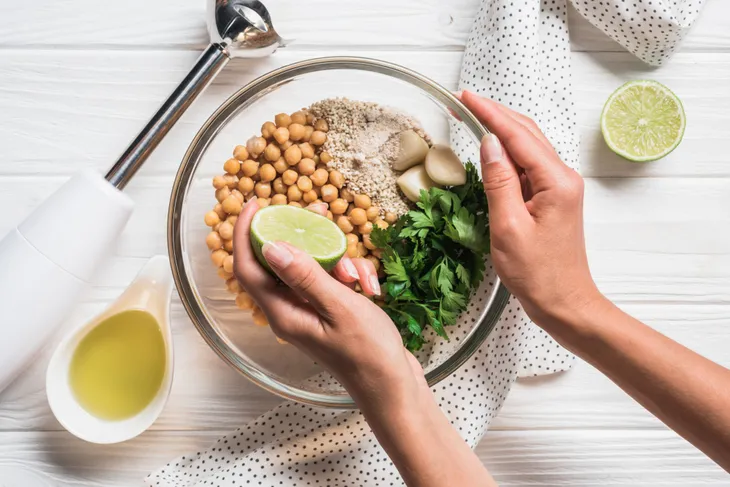Hummus is one of the tastiest snacks you can eat to help power you through the day, but is hummus good for you? This Middle Eastern delicacy is traditionally made of chickpeas, tahini, garlic, and lemon. You can use it as a dip for fruit and veggies, spread it on sandwiches, put it in pasta sauces, or eat it straight from the container if that’s what you’re craving.
While we know hummus tastes good, does it actually qualify as a healthy snack? The answer is yes. Hummus is packed with many health benefits and will undoubtedly satisfy your hunger cravings. Follow along as we explore the benefits of hummus!
Hummus Is Full of Protein
The main ingredient of hummus is chickpeas, which is a plant-based ingredient that’s packed with protein. WebMD says it’s recommended that adult men consume 56-grams of protein a day and women need about 46-grams.
Hummus is an excellent food to help fulfill that daily dose because a 100-gram (one ounce) serving provides approximately 7.9-grams of protein. And since hummus is plant-based, it’s a tasty way for vegetarians (and vegans) to include protein in their diet.
Hummus Can Make You Feel Full Longer
Processed foods full of carbs will make you feel hungry sooner. NBC News explains this happens because carbs are easier for the body to break down. Keep in mind, this can also negatively impact blood sugar levels. But since hummus is full of protein, you will actually feel more full for longer.
Hummus can even help with portion control. According to WebMD, studies show that protein-rich foods help you feel full more quickly. This means your stomach can feel satisfied while consuming fewer calories.
You Can Eat Hummus With Veggies
Not everyone gravitates towards fruits and vegetables, but hummus could fix that problem. Even though this spread is commonly eaten with pita chips and bread, you could swap the pita bread for carrots, red pepper wedges, cucumber slices, or other fruits and veggies that are easy to dip. Hummus can make these healthy foods more appealing to eat.
Hummus May Help Offset Blood Sugar Levels
In one scientific study, experts researched the nutritional value of chickpeas and hummus. Chickpeas rank low on the glycemic index. When the subjects in the study were given hummus, they found that their blood glucose levels were significantly lower after 45-minutes. Furthermore, they found that long-term chickpea intake could also significantly improve glycemic control.
Hummus Is Good for Gut Health
An important part of a healthy diet is getting enough fiber. It’s recommended that adults under the age of 50 need 25-grams for women and 38-grams for men. Did you know hummus is also a great source of fiber? In fact, a 3.5-ounce (100-gram) serving of hummus can provide women with 24-percent of their daily fiber recommendation and men 16-percent.
Healthline explains that in addition to the high fiber content in hummus, the chickpeas can promote the growth of healthy gut bacteria with butyrate. This fatty acid nourishes cells in the gut and has even been linked to lowering the risk of certain diseases like colon cancer.
Hummus Has Anti-Inflammatory Ingredients
If you’re struggling with inflammation, then hummus could be the perfect snack to implement into your diet. Hummus contains some important ingredients like olive oil that are known for treating chronic inflammation.
Healthline explains how olive oil contains oleocanthal which is known for having similar anti-inflammatory properties to popular anti-inflammatory medicines. Also, the sesame seeds found in tahini can work to reduce certain markers of inflammation. Finally, legumes such as chickpeas are another ingredient in hummus linked to reducing inflammation.
Homemade Hummus Can Be the Healthiest
Health experts recommend making your own hummus at home. This is because places like restaurants and packaged hummus sold at grocery stores are often loaded with excess oil. This can easily tarnish its healthy reputation. Make sure to check the nutritional label on products sold in stores to ensure they aren’t pumped with too much oil or other unnecessary ingredients.
Making your own hummus at home is easy and you’ll have the benefit of knowing exactly what ingredients go into it. This will help ensure your hummus is actually a healthy snack. There are plenty of hummus recipes available online and the best part is most of them only require about 5- minutes of prep work!
